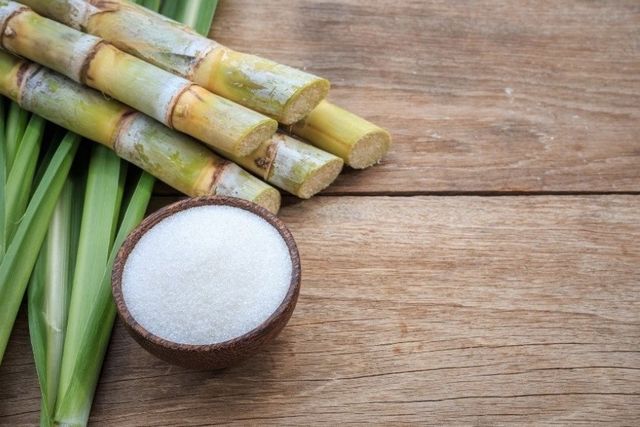Sustainable Sugarcane Products: From Sweeteners to Eco-Friendly Product
The possibility of sustainable sugarcane items extends past typical sugar to include an array of environmentally friendly goods, presenting a compelling situation for their integration into modern-day customer methods. As the world grapples with pressing environmental concerns, sugarcane arises as a flexible source qualified of dealing with both nutritional needs and sustainability goals.
Introduction of Sugarcane Sustainability
As the demand for ecologically pleasant products grows, understanding sugarcane sustainability comes to be progressively essential. Sugarcane, a functional plant, is cultivated largely in tropical and subtropical regions, and its sustainability is important for both ecological wellness and financial feasibility. Lasting sugarcane farming methods concentrate on decreasing environmental effect while making best use of efficiency and productivity.
Key facets of sugarcane sustainability consist of reliable land usage, lowered chemical input, and enhanced water monitoring. Practices such as crop turning, incorporated insect administration, and organic fertilizing add to dirt health and biodiversity. Additionally, ingenious technologies, such as accuracy farming, help maximize resource usage and reduce waste.
Moreover, sugarcane is a renewable resource, with spin-offs that can be made use of in numerous industries, from biofuels to eco-friendly plastics, thus lowering reliance on fossil gas and diminishing carbon impacts. Qualifications like the Bonsucro basic motivate sustainable practices throughout the supply chain, advertising openness and responsibility.

Sugarcane-Based Sweeteners
Making use of sugarcane as a main resource, sugarcane-based sweeteners have actually gotten prominence as all-natural options to artificial sweeteners and refined sugars (sugarcane product). These sweeteners, stemmed from the removal and processing of sugarcane juice, supply a series of products that accommodate varied consumer choices, consisting of organic and minimally processed options
Amongst the most remarkable sugarcane-based sweeteners are raw walking stick sugar, panela, and molasses. Raw cane sugar retains even more of the all-natural flavors and nutrients located in sugarcane, making it a favored choice for health-conscious consumers. Panela, a standard Latin American sugar, is generated by vaporizing sugarcane juice, maintaining its all-natural minerals and vitamins. Molasses, a result of sugar extraction, is abundant in antioxidants and crucial nutrients, functioning as a healthy sweetening representative in various cooking applications.
The growing demand for sugarcane-based sweeteners is driven by raising awareness of health and sustainability issues connected with conventional sugar. By selecting sugarcane-derived items, customers not just support lasting agricultural practices but additionally add to a healthier lifestyle, aligning their dietary choices with their ecological worths.
Eco-friendly Product Packaging Solutions
Becoming a viable alternative to standard plastics, biodegradable packaging options originated from sugarcane are changing the product packaging industry. These innovative materials offer an ecologically pleasant alternative that addresses the expanding problems over plastic pollution. Utilizing the all-natural sugars discovered in sugarcane, suppliers are creating numerous types of biodegradable packaging, including movies, containers, and wraps that break down more quickly than typical plastics.
The main benefits of sugarcane-based product packaging hinge on its sustainable sourcing and its ability to break down into non-toxic byproducts. Unlike fossil fuel-derived plastics, which can continue the atmosphere for hundreds of years, sugarcane product packaging usually disintegrates within a couple of months under correct problems. This reduction in waste not just reduces land fill overflow but also lowers the carbon footprint connected with product packaging products.
Moreover, sugarcane-derived packaging preserves robust efficiency qualities, using similar longevity and capability to traditional choices. As customers and services progressively focus on sustainability, the adoption of naturally degradable packaging options stands i thought about this for a considerable action towards a circular economic climate, where products are recycled and regenerated as opposed to thrown out. This change not just enhances brand image however likewise contributes to a more sustainable future for the planet.
Eco-Friendly Textiles and Fabrics
Green textiles and textiles are acquiring traction in the fashion and home items markets as consumers increasingly require sustainable options to traditional products. Amongst the noteworthy choices are materials stemmed from sugarcane, which provide an environmentally responsible option to artificial fibers. These fabrics are generated through a process that uses the eco-friendly sources discovered in sugarcane, dramatically minimizing reliance on petroleum-based products.

As the market for sustainable fabrics expands, customers can look forward to ingenious styles that integrate style with environmental responsibility. Inevitably, green fabrics and textiles represent a substantial action towards decreasing the look what i found fashion sector's environmental impact while catering to the expanding need for responsible consumer choices.
Developments in Lasting Farming
Revolutionizing agricultural methods, innovations in sustainable farming are transforming the means plants are expanded and managed. These advancements focus on decreasing ecological influence while optimizing performance and performance.

Additionally, agroecology, which integrates ecological principles into farming, advertises biodiversity and dirt health and wellness. Practices such as plant turning, cover cropping, and intercropping foster durable environments that can hold up against bugs and climate variants - sugarcane product. In addition, making use of natural fertilizers and biopesticides adds to much healthier dirts and environments

Together, these technologies are not only reshaping the agricultural landscape yet additionally contributing to a much more lasting future for sugarcane and other plants, straightening farming exercise with environmental stewardship.
Final Thought
Sustainable sugarcane products stand for website link a significant advancement in eco-friendly options, covering from all-natural sugar to eco-friendly goods. As consumer choices progressively lean towards lasting choices, the versatility of sugarcane as a renewable source becomes significantly appropriate.
The possibility of lasting sugarcane products extends past standard sweeteners to include a range of environmentally friendly products, offering an engaging situation for their integration into modern-day customer methods. Lasting sugarcane farming techniques concentrate on reducing environmental influence while optimizing performance and profitability.
Sustainable sugarcane items represent a considerable advancement in environment-friendly alternatives, extending from all-natural sweeteners to eco-friendly products. The farming of sugarcane through lasting methods not only boosts ecological health and wellness however additionally contributes to economic stability. As customer choices significantly lean in the direction of lasting choices, the adaptability of sugarcane as a renewable resource comes to be significantly relevant.